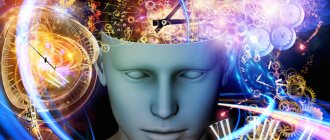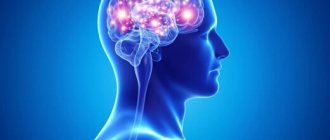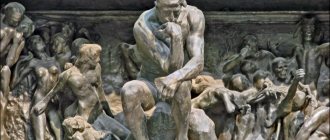Hello, dear readers of the KtoNaNovenkogo.ru blog. A person meets someone throughout his life, has conversations, and creates relationships. He also communicates with classmates and classmates, work colleagues, family members, relatives, and friends.
To choose the right approach and everything goes smoothly, you need to study human psychology. This direction of science will also be useful for personal development. The better you know yourself, the easier it is to discern negative traits for their subsequent correction.
Constantly taking care of your mental state helps to establish a sense of harmony and reduce stress. Let's find out what psychology is, what types and directions it has.
How psychology was born
During the period of antiquity, philosophy took upon itself the responsibility of studying man. Philosophers of that time adopted the concept of soul . It was she who personified the psyche and all its manifestations (emotional state, behavior).
Socrates viewed personality as a set of one's own values, beliefs, and life positions. He paid great attention to mental abilities, which he explored through conversation.
Aristotle identified 3 forms of the soul: plant, animal and rational. He argued that a person goes through all of them during growing up. He called the heart the main sense organ, and the soul the engine of the whole person.
In the Middle Ages, people were closely associated with religion, which preached that a person consists of a physical shell and a soul that completely fills it.
Already during the Renaissance, Descartes introduced the concept of a reflex, which formed the basis of psychology : an irritant comes from the outside world, an impulse passes through the brain, which gives back a human reaction.
The scientist Leibniz argued that there is a relationship between the soul and the body, and not, as they said before, they exist separately according to their own rules. He also first introduced the concept of the unconscious.
And Locke singled out the concept of consciousness. He distinguished between the accumulation of experience that comes from the external world and that experience that arises after reflection.
Müller, Weber, Fechner are famous physiologists who worked to prove the existence of reflexes , disprove the existence of a soul, and study mental processes.
Wundt first opened an institute in Leipzig in 1875 where experiments were carried out. It was there that psychology established itself as a science.
Emotions
Emotions are mental processes that reflect the subject’s attitude to possible or real situations.
Emotions should not be confused with such emotional processes as feelings, affects and moods. To date, emotions have been poorly studied and are understood differently by many experts. For this reason, the definition given above cannot be considered the only correct one. Read also: How to give an injection yourself at home?
Characteristics of emotions are:
- Tone (valence) – positive or negative emotions;
- Intensity – strong or weak emotions;
- Stenicity – influence on human activity: sthenic (inducing action) and asthenic (reducing activity);
- Content – reflects different facets of the meaning of situations that arouse emotions.
Emotions in most cases manifest themselves in physiological reactions, because the latter depend on them. But today there is debate about the fact that intentional physiological states can cause certain emotions.
These and other issues of understanding and managing emotions are discussed in our acting training.
Psychology is the science of man and personality
Psychology is the science of the patterns of emergence, formation, and development of the human psyche in different conditions and stages of life; how it will manifest itself in all humanity and the individual.
In order to collect information, scientists use the following methods :
- observation is the simplest method, which consists in describing what is happening at the time of some situation or a long period of life;
- experiment - it can be natural (in natural conditions with the introduction of small changes from specialists) and laboratory (occurs in artificially created conditions);
- analysis of a person’s creativity - through it the state of the psyche is unconsciously manifested;
- tests and assignments of various types;
- conversation - open communication between a psychologist and a client;
- interview – the specialist asks clearly formed questions.
Scientific developments from the field of psychology are also applied in practice . Methods are being created for diagnosing the client’s emotional state, as well as identifying disorders of memory, attention, thinking, and volitional sphere.
Scientific psychologists think about the correct structure of the consultation in order to obtain the necessary data, and so that the client feels comfortable.
One of the important points of practical psychology is the correction of mental problems , and of humans in particular. And also therapy , if longer sessions are needed to better understand the cause, strong unpleasant sensations.
Like any industry that is related to health care, this science creates a list of conditions for the human psyche that must be adhered to in organizing the educational process and work.
Preventive lectures are conducted and there are individual classes where they tell you how to protect yourself from neuroses, relationship problems, insomnia and other consequences of mental disorders.
We should not forget about human development from childhood. It is psychology that creates and comes up with new recommendations on how to raise a child and improve his speech and thinking.
Over time, teenagers, young men and adults become interested in how to develop certain personality traits. And then science comes to the rescue and provides a large number of books, trainings and one-on-one sessions with a psychologist.
Areas of psychology
Depending on what area people are studied from, different types of psychology are distinguished:
- general psychology - it is she who collects information to understand how the human psyche works in general;
- social – studies the interaction of people in large and small groups;
- personality psychology – considers a person as an individual, evaluates his individual qualities, and looks at how a particular person interacts with society;
- experimental – collects information based on the empirical method of obtaining data;
- genetic – studies the influence of hereditary qualities;
- differential - compares the psyche of people with different development, cultural background and outlook on life, age and gender;
- special – considers people who have defects in mental development;
- developmental psychology – studies a person at all stages of life, identifies the main characteristics and needs of a particular age;
- evolutionary - explains the behavior of modern man on the basis of the habits and behavior patterns of primitive people, which manifest themselves to this day;
- pedagogical – provides information on how to raise and teach children;
- family – deals with relationships between a couple, spouses, parents and children, relatives;
- medical – studies mental disorders, as well as the interaction between doctor and patient, teaches how to correctly convey information about the disease;
- psychophysiology – explains the psyche as a result of the nervous system and the influence of hormones;
- judicial – helps to establish the sanity of suspects and defendants;
- engineering, aviation, sports, military, etc. – depending on the field of work, there is its own specificity of the human psyche, which is taken care of by a narrowly focused type of science.
Literature
For those who have a desire to dive deeper into the study of the topic of social psychology, below we present a small but very good list of literature that makes sense to consult.
- Ageev BC Intergroup interaction: socio-psychological problems. M., 1990
- Andreeva G.M. Social psychology M., 2003
- Bityanova M.R. Social psychology M., 2002
- Bodalev A.A. Perception and understanding of man by man M. Moscow State University, 1982
- Bodalev A.A. Personality and communication M., 1995
- Dontsov A.I. Psychology of the collective M., 1984
- Leontyev A.A. Psychology of communication M., 1998
- Kolomensky Ya.L. “Differentiation of social psychology and some problems of developmental psychology” St. Petersburg: Peter, 2000
- Myasishchev V.N. Psychology of relations Moscow-Voronezh, 1995
- Fundamentals of socio-psychological theory / Ed. A.A.Bodaleva, A.N. Sukhova M., 1995
- Parygin B.D. Social psychology M., 1999
- Personality psychology and lifestyle / Rep. ed. E.V. Shorokhova M. Science, 1987
- Rean A.A., Kolomensky Ya.L. Social educational psychology St. Petersburg, 1998
- Robert M., Tilman F. Psychology of the individual and group M., 1988
- Sekun V.I. Psychology of activity. Minsk, 1996
- Semenov V.E. Method of studying documents in socio-psychological research L., 1983
- Modern foreign social psychology Texts / Ed. G.M.Andreeva et al. M., 1984
- Social psychology / Ed. A.N. Sukhova, A.A. Derkach M., 2001
- Social psychology and social practice / Ed. E.V. Shorokhova, V.P. Levkovich. M., 1985
- Social psychology of classes / Ed. G.G.Diligensky M., 1985
- Spivak D.L. Altered states of mass consciousness St. Petersburg, 1996
- Stankin M.I. Psychology of communication Course of lectures M., 1996
- Stefanenko T.G., Shlyagina E.I., Enikolopov S.N. Methods of ethnopsychological research. M., 1993
- Stefanenko T.G. Ethnopsychology. Vol. 1. M., 1998
- Sukharev V., Sukharev M. Psychology of peoples and nations. M., 1997
- Freud 3. Group psychology and analysis of “EGO” M., 1991
- Shevandrin N.I. Social psychology in education M., 1996
- Shikhirev P.N. Modern social psychology in Western Europe M, 1985
Main directions of psychology
Throughout time, new directions in psychology and approaches to humans have been created.
Today, many of them are actively used and are selected for a specific person and individual situation.
Probably everyone knows that the theory of psychoanalysis was created by Freud .
The main points are that the main problems and causes of behavior are hidden in the unconscious .
And the main stage in the formation of individuality occurs in childhood. Libido and fear of death are factors that often move a person. This method is suitable for the treatment of neuroses and old psychological traumas.
Gestalt psychology claims that you need to perceive the picture holistically, and not split it into separate elements, as the direction described above does. That is, look not at a specific personality trait, but at the whole person and the living conditions around him.
There are concepts of open gestalt, when some situation has not ended acceptably. Therefore, during sessions they play it, discuss it and close it so as not to disturb the client.
Hypnosis is used to bring a person into an altered consciousness and become closer to the unconscious. During the session, they try to extract the causes of the problem, negative factors that the client does not want to share in a normal dialogue. Positive attitudes can also be instilled. For example, that everything is fine and the person calms down.
Client-centered psychology in its name indicates that the main role in the session is given to the client. That is, he can help himself, only to do this he needs to be carefully directed in the right direction.
Therefore, most of the attention is directed to establishing a trusting relationship between the psychotherapist and his interlocutor, so that he trusts and feels confident.
Art psychology tells how, with the help of creativity, a person can pour out his negative emotions and feelings, and thereby relieve himself of heaviness. Also, the psychotherapist can give tasks and interpret their implementation (text, drawing, modeling), together with the client, study the problem hidden inside him, and find a way out.
The cognitive-behavioral direction deals with the correction of the client’s erroneous thinking. A psychologist explains what a person is doing (or thinking) wrong. Gives examples, arguments, recalls various similar situations. It also shows how you can live by the new rules.
What books will help a beginner
What books should I start with to get to know myself and the science of psychology? Initially, let’s say that this can be either non-educational literature or textbooks or monographs on the topic under consideration.
- L. Burbo “5 injuries that prevent you from being yourself.” This book will tell you in an easy and understandable way about the five main personal traumas. He will also tell you what methods and methods can be used to work them out;
- D. Kehoe “The subconscious can do anything.” Reveals such elements as consciousness and subconsciousness, as well as how they work and interact with each other;
- K. Jung “Memories, Reflections, Dreams.” The book is quite popular in Jung's writings. It reveals deep psychology. In general, all of Jung's works are required reading, as they reveal the basis and basis of psychology;
- D. Goleman “Emotional Intelligence.” Reveals the characteristics of our emotions and the emotional functioning of the brain.
If you want to go deeper into more theoretical knowledge, any general psychology textbook will do. It can be purchased, downloaded or borrowed from the library. The choice is yours.











